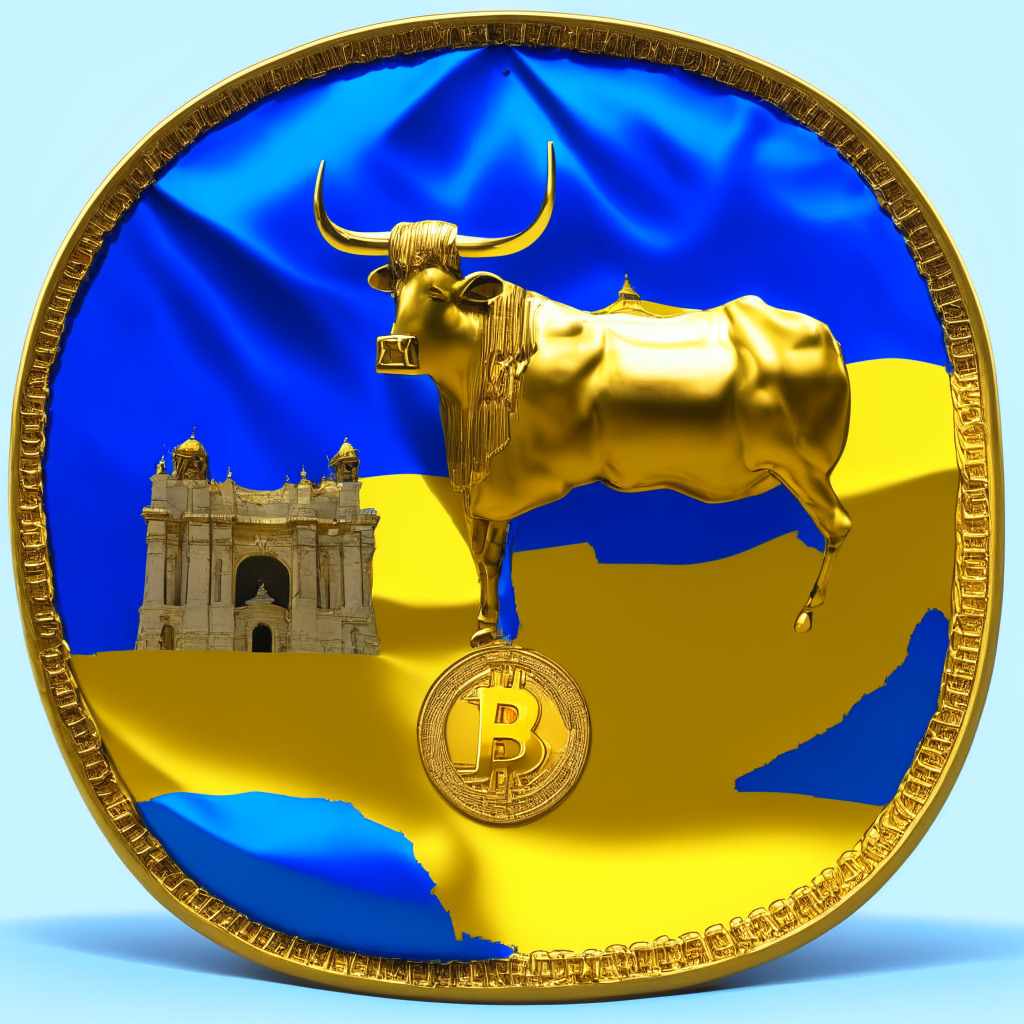Coinbase has secured an Anti-Money Laundering compliance registration from Spain’s central bank, enabling crypto services in the country. As Coinbase expands globally, it faces possible complications from varying regulatory frameworks and is urged to prioritize asset security as skeptical holders consider withdrawing assets.
Search Results for: Coinbase Global
Coinbase’s Global Game Plan: Tapping into Foreign Markets Despite US Regulatory Tensions
Coinbase, a global digital asset exchange, plans to expand its operations into Canada, the UK, Australia, Brazil, Singapore, and the European Union, prioritizing these markets due to more progressive digital asset regulations. This decision came after acknowledging restrictive regulations in the US market as a significant impediment. Key strategies for expansion include partnering with banks, payment service providers, and increasing local community engagement.
Navigating the Global Ambitions of Coinbase: Expansion, Investments, and Hurdles Ahead
“Coinbase’s ‘Go Broad, Go Deep’ global expansion includes acquiring licenses and enhancing market presence in regulatory clear countries like Europe, Canada, Brazil, Singapore, and Australia. It added six new projects to its Base Ecosystem Fund while cryptocurrency startup LBRY battles a legal charge brought by the SEC.”
Coinbase Expansion: Pursuing Global Reach Amid Regulatory Ambiguity
“Cryptocurrency exchange Coinbase is eyeing international expansion, with focus on UK, EU, Canada, Brazil, Singapore, and Australia. Despite initial doubts, the company is strategically positioning itself as a trusted brand in Europe ahead of crucial 2024 elections and plans to introduce derivatives to new markets.”
Coinbase’s Global Super-App Vision Amid SEC Lawsuit: Opportunities & Challenges
Despite facing a recent SEC lawsuit, Coinbase CEO Brian Armstrong envisions the exchange as a global “super-app” driving the Web3 economy. This decentralized app could revolutionize finance and digital asset interactions but may face regulatory scrutiny, potentially hindering its growth and impact on mainstream blockchain adoption.
Hong Kong’s Invitation to Coinbase: A Step Towards Global Crypto Collaboration Amid SEC Scrutiny
The US SEC has filed lawsuits against top crypto exchanges Binance and Coinbase for securities law violations. However, a Hong Kong legislator’s invitation to these exchanges signals a growing global acknowledgement of cryptocurrencies’ importance and a potentially more collaborative approach from regulators worldwide to foster dialogue, address concerns, and ensure a balance between innovation and security.
Hong Kong Welcomes Crypto Exchanges: Coinbase Explores Global Expansion Amid Regulatory Challenges
Hong Kong welcomes global virtual asset trading operators, including Coinbase, with the region’s Securities and Futures Commission (SFC) accepting crypto trading platform license applications. This move offers potential growth and friendlier regulations amid increasing scrutiny on cryptocurrency exchanges in the United States and other countries.
Coinbase’s Global Expansion: Can US Regulators Keep Up and Maintain Competitive Edge?
Coinbase navigates international expansion amidst US regulatory challenges, praising European Union and United Kingdom for their comprehensive approach to crypto regulation. Its aggressive global expansion highlights the need for US regulators to adopt a more proactive approach towards crypto regulation.
Coinbase One Global Expansion: Zero-Fee Trading Boon or Revenue Risk for the Exchange?
Coinbase expands its zero-fee subscription service, Coinbase One, to the U.K., Germany, and Ireland, offering reduced trading fees and higher staking rewards. Despite potential revenue impact, the company aims for global market dominance across 35 countries, amidst regulatory uncertainty.
Coinbase’s Global Advisory Council: Navigating Crypto Regulations with Former US Lawmakers
Coinbase launches its Global Advisory Council, including former US lawmakers Patrick Toomey, Tim Ryan, and Patrick Maloney, to navigate crypto regulations. The council aims to collaborate with regulators, shaping the future of cryptocurrency and bridging the gap between regulators and innovators.
Coinbase CEO Praises UAE’s Crypto Approach Amid Global Regulatory Tensions
Coinbase CEO Brian Armstrong praises the UAE for its progressive approach to cryptocurrency regulations and being the first to establish a dedicated crypto regulator. The country combines business-friendliness with robust customer protections, attracting major exchanges and fostering a welcoming environment for the crypto industry.
Coinbase International Exchange: Catering to Institutional Clients and Global Regulatory Changes
Coinbase launches Coinbase International Exchange, targeting institutional clients outside the US and offering perpetual swaps for Ethereum and Bitcoin. This move aims to capitalize on growing demand for trustworthy crypto trading services and adapt to the evolving global regulatory landscape.
Coinbase’s Bermuda Move: Escaping Stricter US Regulations or Expanding Global Reach?
Coinbase opens a derivatives exchange in Bermuda amid stringent U.S. crypto regulations under SEC’s Gary Gensler. The SEC has blocked new services like Earn and a staking platform, prompting Coinbase’s international expansion efforts.
Coinbase’s Global Derivatives Platform: Impact on Crypto Regulations and Bermuda’s Crypto Hub Ambitions
The crypto exchange Coinbase unveiled the Coinbase International Exchange (CIE), an institutional platform for crypto derivatives trading. Launching in Bermuda, CIE will initially list Bitcoin and Ether perpetual futures, with all trading settled in USD Coin. This development could impact future cryptocurrency regulations and influence jurisdictions like Bermuda seeking to attract crypto businesses.
CoinDCX’s Integration of Transak: Fostering User-Centric Globalization or Inviting Regulatory Complexity?
CoinDCX has expanded its self-custody wallet, Okto, through its integration with the on-ramp platform, Transak. This move enhances transactions, boosts supported tokens and expands its reach globally. However, potential regulatory issues and complexities from involving a multitude of tokens cannot be overlooked.
Navigating Cryptocurrency Regulations: Global Challenges and Opportunities
Despite the Securities and Exchange Commission (SEC) continually delaying its decision on spot Bitcoin ETFs, crypto entities are willing to meet regulatory requirements, reflected in Bitwise’s amended application. Meanwhile, Bitcoin gains recognition in China while tighter regulations appear in Taiwan and Hong Kong. This signifies cryptocurrencies navigating between regulatory acceptance and constraints.
Crypto Regulation: Singapore’s Strides Forward with MPI Licenses to GSR Markets and Coinbase
The Monetary Authority of Singapore (MAS) granted GSR Markets, a crypto liquidity provider, a Major Payment Institution license. GSR, like Coinbase, can now provide crypto and fiat-linked services to Singaporean entities and residents, expanding crypto regulation. Despite potential challenges, including transaction irreversibility and crypto’s inherent volatility, Singapore’s balance of fostering innovation while ensuring safety allows over 700 Web3 companies to thrive, indicating a significant crypto future for finance.
Singapore’s Crypto Embrace: Coinbase’s MPI License Triumph and the Double-edged Sword of Security
“Coinbase, the crypto exchange, obtained a Major Payment Institution (MPI) license from Singapore’s Monetary Authority. This approval extends its digital token services in Singapore, augmenting its responsibility towards the expanding crypto and Web3 community. However, potential risks such as hacks, scams, and breaches loom large in the emerging cryptocurrency landscape.”
Coinbase’s Major Step: Securing MPI License under Singapore’s Payment Act
“Crypto exchange Coinbase has secured a full Major Payment Institution license in Singapore, permitting it to expand its crypto payment services. This progress aligns with Coinbase’s global aspirations, while resonating with Singapore’s leading-edge economic approach and regulations. However, the accompanying need for regulatory clarity and risk management is emphasized.”
Coinbase’s Expansion Emphasizes Need for International Crypto Regulations
Coinbase, a leading US-based crypto exchange, has secured approval from the Bermuda Monetary Authority to offer perpetual futures trading services outside the US. This move aims to tap into the growing retail sector interest in cryptocurrency trading, which constitutes three-quarters of the global crypto trading volumes. With a global expansion strategy covering 24 countries, Coinbase also plans to advocate for standardized cryptocurrency regulations at the G20 forum in Brazil.
Cryptocurrency Outflows Extend for Six Weeks Straight: The Spotlight on Global Differences
In a volatile week for digital assets, an unbroken six-week outflow trend was experienced, with Bitcoin and Ethereum contributing significantly. CoinShares market report revealed $9 million total outflows, with Bitcoin and Ethereum accounting for $6 million and $2.2 million, respectively. Interestingly, altcoins like Ripple(XRP) and Solana (SOL) saw inflows.
Global Crypto Regulatory Trends: A Challenge or an Opportunity?
Recent global legislative actions are intensifying cryptocurrency regulation discussions. Hong Kong is focusing on regulated exchanges to decrease fraud-related investor losses, Thailand is taxing overseas crypto profits, Brazil is advocating for digital assets protection, and the U.K. and U.S. are developing bills targeting illegal crypto use and curtailing Central Bank Digital Currencies respectively. Regulatory changes highlight the balance between encouraging financial innovation and protecting citizens.
Coinbase’s Huge BTC Holdings: Sign of Dominance or Call for Decentralization?
“Cryptocurrency exchange Coinbase reportedly holds 1 million Bitcoin, about 5% of total in existence. However, fears of centralized exchanges halting withdrawals have caused controversy. The company’s ongoing accumulation amid regulatory scrutiny also raises concern. Conversely, its holdings and financial performance highlight its industry dominance.”
Legal Troubles Ripple Through Crypto Space: FTX Controversy and Coinbase’s AML Victory
The article discusses legal disputes in the crypto world, highlighting a lawsuit involving legal team Fenwick & West and cryptocurrency exchange FTX, caught up in allegations of fraudulent activities. On a positive note, it mentions Coinbase’s recent AML compliance registration from the Bank of Spain, indicating global advancements in cryptocurrency regulation.
Coinbase’s Unpursued Acquisition of FTX Europe: The Impact on Crypto Derivatives Trading
Coinbase reportedly aimed to acquire bankrupt FTX Europe to expand its overseas derivatives business but ultimately pulled out. The sale of FTX Europe illustrates the high stakes in the crypto sphere, and the growth and risks associated with derivatives trading.
Alchemy Pay: A Step Towards Regulatory Acceptance for Global Crypto Firms?
“Alchemy Pay, a cryptocurrency payment gateway, has acquired a crucial payment license in Arkansas, positioning itself alongside major players authorized to handle crypto-to-fiat transactions in the state. This move signifies their dedication to regulatory compliance, and commitment to connect fiat and crypto global economies.”
New Leadership at MobileCoin: Charting the Course for Global Expansion and Swift Crypto Transactions
MobileCoin’s CTO, Sara Drakeley, has been promoted to CEO to further the company’s goal of swift transnational payments. The company plans global expansion, focusing on regions with strong cryptocurrency usage like Africa and Latin America. New app Moby promises rapid transactions while maintaining user privacy.
Coinbase CEO Confirms Lightning Network Integration: A Strategic Move to Enhance Transaction Efficiency
Coinbase CEO, Brian Armstrong, recently announced the firm’s plan to bring the Bitcoin Lightning Network into its operations. This second-layer solution improves transaction speeds, enabling competition with more efficient solutions. Coinbase’s move is expected to give them a competitive advantage in the increasing crypto market competition.
Unpacking Telegram & Coinbase’s Crypto Integration: Boost or Bottleneck for Blockchain?
Messaging app, Telegram integrates a crypto wallet, available to its 800 million global users, potentially positioning it as a mainstream blockchain platform. Simultaneously, crypto exchange Coinbase integrates Bitcoin’s layer 2 payment protocol, Lightning Network, promising faster transactions. Despite apparent benefits, the integration process and exclusions pose potential drawbacks.
Navigating the Indian Crypto Market: Coinbase’s Struggles and Opportunities
Coinbase’s pursuit of the vast Indian crypto market is hampered by regulatory hurdles and authority negotiations. Despite termination of its service for some customers, it continues to operate. With high-profile exits and a confrontation with the Reserve Bank of India, the crypto giant faces challenges in adapting to the country’s market standards. Nonetheless, India’s advocacy for global crypto regulatory structures might signal a shift in the tides.
Bitcoin’s Lethargic Performance versus Coinbase’s Ambitious Expansion: Key Factors Defining Crypto’s Future
“Bitcoin’s lethargic performance contrasts with Coinbase’s new international expansion plans. Responding to uncertainty in U.S. regulations, Coinbase targets significant financial jurisdictions with clear crypto rules. Meanwhile, upcoming changes in accounting standards could affect the perceived value of Bitcoin-heavy companies like MicroStrategy.”
Coinbase’s New Expansion: A Strategic Move or Industry Pressure?
Coinbase, a top crypto exchange, aims to expand to non-U.S. markets, prioritizing countries with clearer crypto regulations. The company’s strategy includes acquiring licenses, setting operations, and registering in these markets. It points to a lack of crypto-forward regulation in the U.S., potentially impacting its influence in the crypto field.































